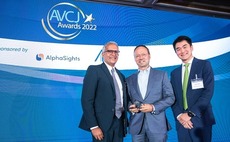
Korea middle market: Behind the curtain
Korea’s middle market continues to blossom thanks to succession issues, restructuring and ambitions to expand overseas. But deals are struck in strict confidence – and GPs say that is how it should remain
Vogo Investment knew that South Korean lifestyle product manufacturer Bodyfriend was looking for a private equity buyer. But the GP also knew it couldn't tie the knot without a long courtship.
"We worked on that owner for one year. And for the first six months, all they kept saying was, ‘You come in as a minority shareholder, you come in as a second shareholder,'" recalls Jason Shin, Vogo managing partner. "It took six months of persistence to convince them an outright control sale was the best option for them."
Vogo's pursuit of Bodyfriend, which ended recently with the firm taking a 90% stake in the company, was just one performance of a dance to which Korean mid-market GPs are learning the steps by heart. Opportunities in the middle market are not rare, but a certain degree of finesse is required to take advantage of them. For those funds that do show the necessary level of commitment, the segment holds the promise of considerable rewards.
Korea's private equity market has come a long way since the days following the Asian financial crisis, when the field was held in disrepute. Industry participants who remember the time when the public perception of private equity firms was as unethical manipulators of markets now say they are increasingly accepted by the financial community.
"Whether you are local, international, or a regional private equity firm, today you are generally respected as a deal counter party and a legitimate owner of businesses by strategics as well as individual owners," says Michael Chung, managing director of Morgan Stanley Private Equity Asia (MSPEA).
Three flavors
The history of middle market deal flow in Korea supports this story of growing acceptance. AVCJ Research data show that the volume of deals executed in Korea below $500 million has grown from 142 in 2005 to 371 in 2014. The vast majority of these transactions have consistently been in the segment below $200 million. The total amount of money invested in the sub-$200 million segment has increased as well, from $3.7 billion in 2005 to $9.1 billion in 2014.
These deals tend to fall into one of three types. The first is a classic succession play for family-owned companies whose aging founders want to hand over control to a new party, but cannot find anyone suitable within their immediate surroundings. These deals have increased lately, as a generation of entrepreneurs who first achieved success in the industrialization of the 1980s and 1990s has come of age.
Another important source is chaebol groups that need to spin off underperforming or non-core assets. PE firms may be seen as a more attractive partner for these conglomerates, since they are not competitors in the sense that other chaebol are. The final group comprises local companies that want to expand overseas. Often these businesses have done well within Korea but feel they have reached the limit of what they can accomplish domestically.
"These companies need to diversify their customer portfolio and also the supply chain in the global market," says Won-pyo Choi, partner at Bain & Company. "Sometimes they don't have their own capabilities, so they would like to get some funding, and also get some help in terms of knowledge of the overseas market, connecting to the overseas customers, and so on."
Unison Capital's experience with bubble tea chain Gong Cha is an example of this last type of deal. The Japan-based PE firm - which now has a dedicated Korean fund - bought a 70% stake in the master Japan and Korea franchises for the company, which is based in Taiwan. From the initial level of 255 stores at the time of acquisition, the firm boosted the number of outlets in Korea to 340, and is now about to open its first store in Japan.
It's important to have a good network, and also good source building with the owners directly. So the PE fund managers go out to dinner and drinking with the owners quite frequently to source the deals - Won-pyo Choi
However, T.J. Kono, a partner at Unison, says it is important not to overestimate the importance of overseas expansion to Korean companies. "Of the companies we look at, 20-30% have an immediate overseas angle, or they have significant business importing something from overseas, and so on," he says. "For 70-80% of the companies, operational improvement is the fundamental theme, and then overseas is just an upside to the deal."
Sourcing on the quiet
While such acquisitions offer GPs numerous chances to prove their value, they must first meet the fundamental challenge of finding the deals. This can be especially difficult in Korea, where companies place a particular premium on confidentiality. There are transactions that go through a standard auction process, but it is far more common for deals to be done on a proprietary basis. This applies not just to succession issues, but also to purchases of chaebol assets.
Since investment banks and other typical sources of information on private equity deals are not as useful in Korea, a high premium is placed on personal networks. GPs often find it useful to cultivate contacts among the ecosystem of accountants, lawyers, and other players who operate near the sellers themselves.
"To make deals in the middle market, it's important to have a good network, and also good source building with the owners directly," says Bain & Co's Choi. "So the PE fund managers go out to dinner and drinking with the owners quite frequently to source the deals."
The reasons for this requirement vary according to the nature of the player. The chaebol may be worried about competitors getting wind of the deal and making a play for the asset. Independent owners, meanwhile, are concerned about being perceived as weak, for needing an outsider to help take over the company, or as a failure for not keeping the business within the family. This can be a greater psychological burden than that faced by a chaebol group, which has multiple other businesses to fall back on.
"If you are an owner of just one company, and you've spent your last 40 years growing it, the last thing you want is to be on the front page of the newspaper, reading the speculation where such and such company is being sold, why is it being sold, what is going on with the family," says Vogo's Shin. "And what if, at the end of the day, they fail to sell? That's fatal for them."
MSPEA's experience with tissue paper manufacturer Ssangyong C&B and Monalisa shows how important a reputation for discretion can be for a GP seeking a control deal.
The PE firm took over from a CEO who was planning to retire, but did not have a readily available successor. He felt that a sale would be a good way to keep the company going, but feared the repercussions if word of the talks leaked out to the unionized work force. MSPEA was able to leverage its experience with previous takeover deals to convince the founder that they would keep his information safe.
"We had successfully closed the [restaurant chain] Nolboo investment two years before, which had demonstrated our ability to execute on a confidential basis," says Chung. "This, along with the reputation of Morgan Stanley, helped position us well for the Ssangyong C&B and Monalisa situation. We were consequently able to close that transaction on a proprietary basis."
The Ssangyong C&B and Monalisa deal shows that foreign GPs have the potential to do well in Korea's middle market. However, they must be mindful of challenges relating to the need for personal connections with sellers.
It would be natural to suspect that GPs of a Korean origin hold an advantage when it comes to this kind of networking. After all, the team of a domestically originated GP very likely has grown up in the target country, speaks the language, and understands the business customs better than a transplanted manager. They should hold the home field advantage.
Data provided by Thomson Reuters does seem to bear this estimation out. Between 2006 to 2014, the number of inbound buyout deals - those carried out by outside firms investing in Korea - valued in the midmarket range below $200 million rose from 71 to 136. Over the same period, the number of such deals done by domestic funds rose from 609 to 1,072 - a slower growth rate that still nevertheless reflects nearly 10 times as many deals.
However, these numbers do not tell the whole story; as mentioned earlier, foreign GPs may appeal to a different group of sellers than domestic funds. A fund that can boast significant international connections and a global network can be a much more attractive partner than a domestic GP to companies that are considering overseas expansion.
In addition, local firms are subject to restrictions on their actions that foreign originated GPs do not have; due to the more limited sources of their funding, it can be harder for them to justify acquiring an asset that is for sale by another domestic fund.
"Once they make an investment, when they exit, they cannot actually sell their portfolio companies to another Korean local fund, because the LPs are the same, so they have some conflict," says Bain & Co's Choi. "Some of the global funds are free from that constraint, so they can buy some of the secondary deals."
Exit issues
Exits are not a major worry for middle market players, but some GPs do see a potential for concern in the long run. Despite the growth in acquisitions over the last five years, exits have not kept pace. AVCJ Research shows the number of exits for less than $500 million holding more or less steady from 2010 to 2014. This suggests that the number of portfolio companies is increasing.
Two factors have the potential to make exits trickier for GPs. One is, perhaps counter-intuitively, increasing valuations - as a company rises in value, the potential price tag can put off all but GPs with the deepest pockets. With fewer bidders competing for the asset, it becomes more difficult to drive a higher bargain. The company would need to be particularly attractive to make the price worthwhile in this case.
We try to make our value add to the company very clear in our communication early on. And that makes it easier for us to convince the seller to let us deep dive into the company so that we can bring up very concrete ideas - T.J. Kono
Another issue is lack of control. For GPs with minority stakes, exiting under the conditions of their choosing is nearly impossible. They are at the mercy of other decision makers, which may be an uncomfortable situation, particularly with large amounts of money at stake. This prospect is why some managers, like MSPEA's Chung, prefer to stay away from minority stakes.
"I believe GPs will need to be ever more mindful of their exit strategies going forward," says Chung. "That being said, when you own control of a business and that business sustains its strategic value, generally speaking, you hold the ability to sell; you can run a process tomorrow should you decide to. The question would be on the valuation that buyers attribute to your asset, but these are generally sellable."
Despite these issues, the outlook among GPs for the middle market remains confident. Managers feel that the overall lack of publicity, compared to that for larger deals above $500 million, means that the middle market is likely to remain immune from the investor enthusiasm that can drive up valuations beyond an affordable level. GPs that can maintain their appeal to sellers should have few problems thriving.
"Obviously there are enough players that we face competition," says Unison's Kono. "But we try to make our value add to the company very clear in our communication early on. And that makes it easier for us to convince the seller to let us deep dive into the company so that we can bring up very concrete ideas. It has worked in the past, and that's certainly our strategy."
Latest News
Asian GPs slow implementation of ESG policies - survey
Asia-based private equity firms are assigning more dedicated resources to environment, social, and governance (ESG) programmes, but policy changes have slowed in the past 12 months, in part due to concerns raised internally and by LPs, according to a...
Singapore fintech start-up LXA gets $10m seed round
New Enterprise Associates (NEA) has led a USD 10m seed round for Singapore’s LXA, a financial technology start-up launched by a former Asia senior executive at The Blackstone Group.
India's InCred announces $60m round, claims unicorn status
Indian non-bank lender InCred Financial Services said it has received INR 5bn (USD 60m) at a valuation of at least USD 1bn from unnamed investors including “a global private equity fund.”
Insight leads $50m round for Australia's Roller
Insight Partners has led a USD 50m round for Australia’s Roller, a venue management software provider specializing in family fun parks.








